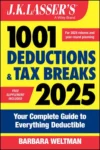Gambling Winnings and Losses: What You Need to Know
Gambling—legal and illegal—is widespread. For example, according to the Fantasy Sports Trade Association, it is estimated that 56.8 million people in the U.S. and Canada participated in fantasy football in 2015. Many play slots, raffles, bingo, and the lottery. Most players lose; some players win from time to time.
1. All winnings are included in gross income
Casinos and other entities that pay out winnings must report amounts over various thresholds (depending on the game involved) to the winners and the IRS. The law on the proper reporting to winners of fantasy sports gambling online is unclear (there was one letter ruling in 2005 on the subject). Nonetheless, taxpayers are required to report all of their winnings, including amounts that are not reported to them. Gambling winnings are reported as “other income” on line 21 of Form 1040.
2. A deduction for losses is limited
Taxpayers can deduct gambling losses for the year only to the extent of their gambling winnings. However, losses are not simply netted against winnings to lower or eliminate the amount of winnings reported. The winnings are reported in full and then a loss can be taken separately. The deduction for gambling losses is taken as a miscellaneous itemized deduction. The 2%-of-adjusted-gross-income floor that applies to most miscellaneous itemized deductions does not apply to gambling losses. (Professional gamblers may treat losses as a deductible business expense.)
Taxpayers who are subject to the alternative minimum tax (AMT) lose any benefit from the deduction for gambling losses. The reason: miscellaneous itemized deductions are not deductible for AMT purposes.
3. Winnings may be subject to withholding
Depending on the amount of winnings, the gaming establishment is required to withhold federal income taxes at a flat rate of 25%. Those subject to backup withholding have a 28% rate.
The gaming establishment reports the withholding to the winner and to the IRS on Form W-2G.
4. Records are needed to support a deduction for losses
You can’t simply guess how much you’ve lost when claiming a deduction on Schedule A. You need certain proof, including receipts, tickets, credit card statements, proof of bank withdrawals, and other records. The IRS also wants you to keep a diary and note:
- The date of the gambling event
- The type of gambling activity
- The name and address of the gaming establishment or event
- The names of other people there at the time
- The total amount of winnings and losses
The IRS says you can use the following items to support winnings and losses from specific types of gaming:
- Bingo. A record of the number of games played, cost of tickets purchased, and amounts collected on winning tickets. Supplemental records include any receipts from the casino, parlor, etc.
- Keno. Copies of the keno tickets you purchased that were validated by the gambling establishment, copies of your casino credit records, and copies of your casino check cashing records.
- Lotteries. A record of ticket purchases, dates, winnings, and losses. Supplemental records include unredeemed tickets, payment slips, and winnings statements.
- Racing (horse, harness, dog, etc.). A record of the races, amounts of wagers, amounts collected on winning tickets, and amounts lost on losing tickets. Supplemental records include unredeemed tickets and payment records from the racetrack.
- Slot machines. A record of the machine number and all winnings by date and time the machine was played.
- Table games (twenty-one (blackjack), craps, poker, baccarat, roulette, wheel of fortune, etc.). The number of the table at which you were playing. Casino credit card data indicating whether the credit was issued in the pit or at the cashier’s cage.
Conclusion
While gambling is a rather common activity, the tax rules for winnings and losses are not commonly understood. If you’re confused, talk with a tax advisor.
Foreign earned income exclusion
In 2007, up to $85,700 of foreign earned income is exempt from tax if a foreign residence or physical presence test is met.



